You can buy a castle for £500,000 with its own jousting field and a moat — dating back to William the Conqueror
Wigmore Castle was established in 1067 and was a major centre of power for over 500 years, and now you can be the owner of it
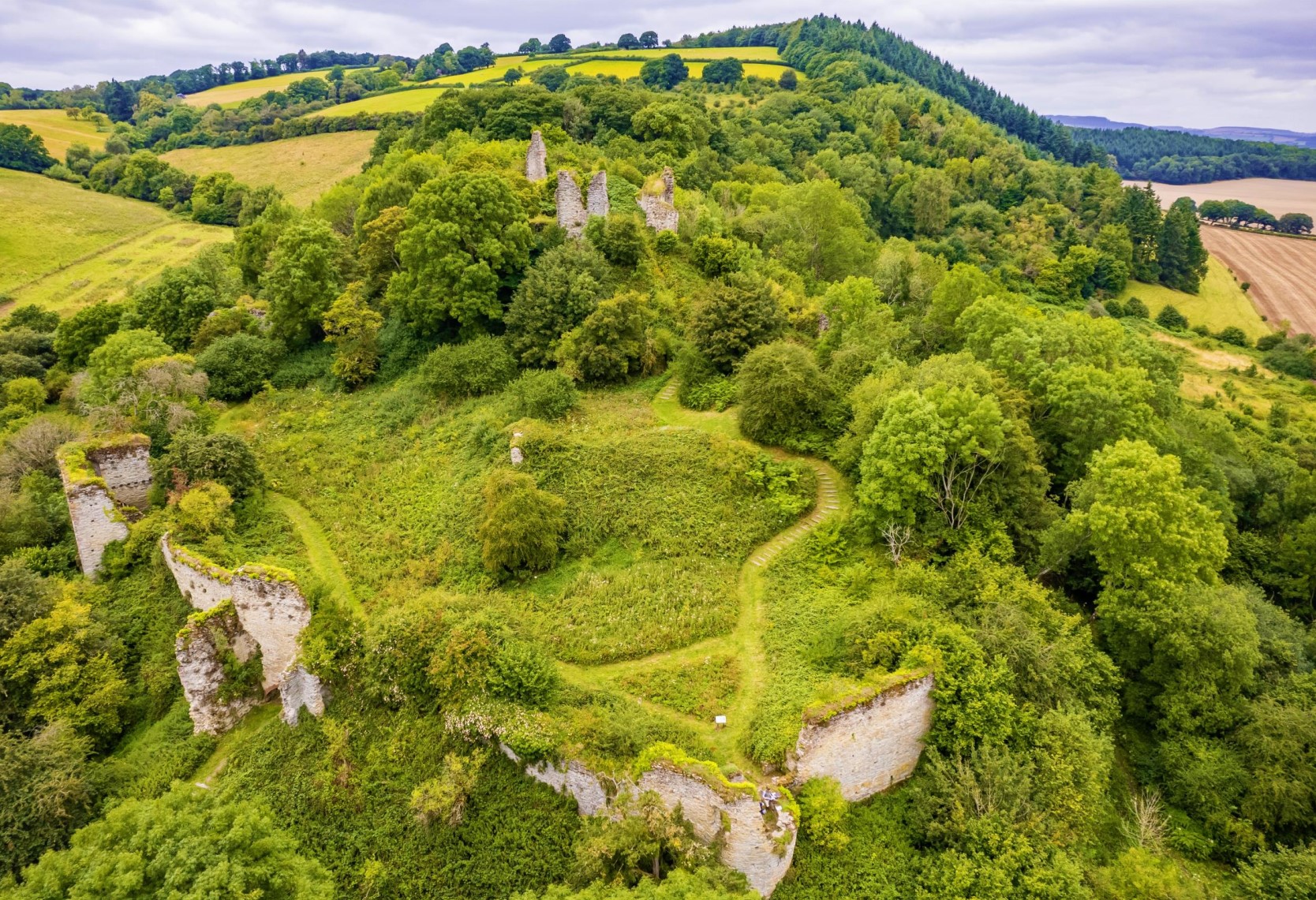
A thousand-year-old castle has gone on the market for £500,000 – and features incredible historical features like a moat, turrets, walls, and jousting field.
Wigmore Castle in Herefordshire is considered one of the UK's 'most remarkable ruins' by English Heritage and is close to the village of Wigmore.
If you fancy yourself a lord or lady and have the money, check out our guide to buying a listed building.
Has its own moat and a jousting field
According to the listing, Wigmore was one of many castles built close to the England–Wales border after the Norman Conquest.
The original motte and bailey castle was established in 1067 by William Fitz Osbern. It was a major centre of power for over 500 years, and played host to several kings and queens. It was held by the Mortimer family from about 1075 to 1425, when it passed to the Crown.
The castle fell into ruin after the Civil War and remained an untouched ruin until the 1990s, when English Heritage conserved it in a way that ensured the castle’s natural environment was preserved.
English Heritage describes the remains of the castle as “among the most remarkable ruins in England” and it features a moat, woodland, and former jousting field.
Get the Homebuilding & Renovating Newsletter
Bring your dream home to life with expert advice, how to guides and design inspiration. Sign up for our newsletter and get two free tickets to a Homebuilding & Renovating Show near you.
Part of the site is also situated with the Wigmore Conservation Area and in a Local Wildlife Site and the details can be found here.
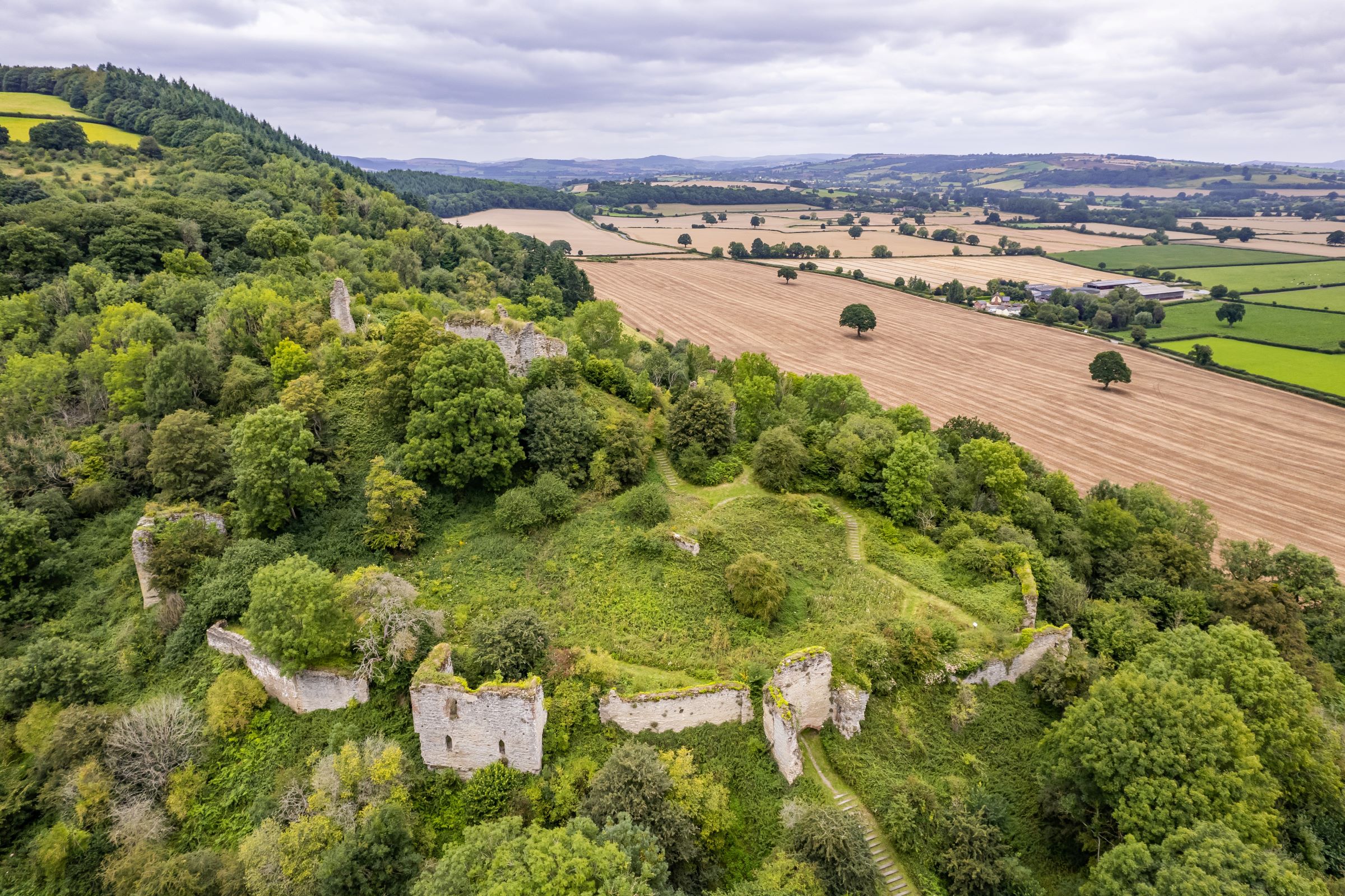
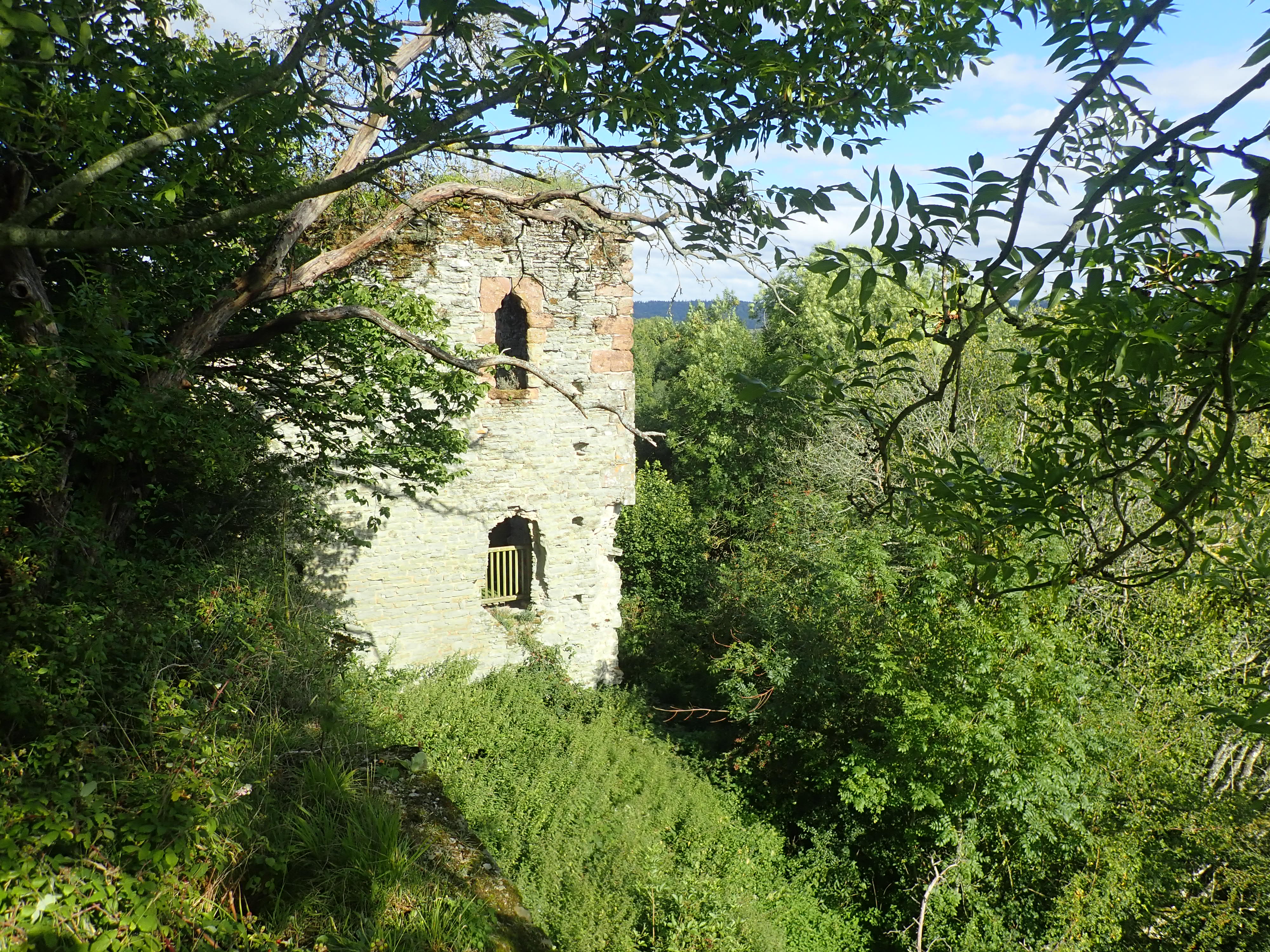
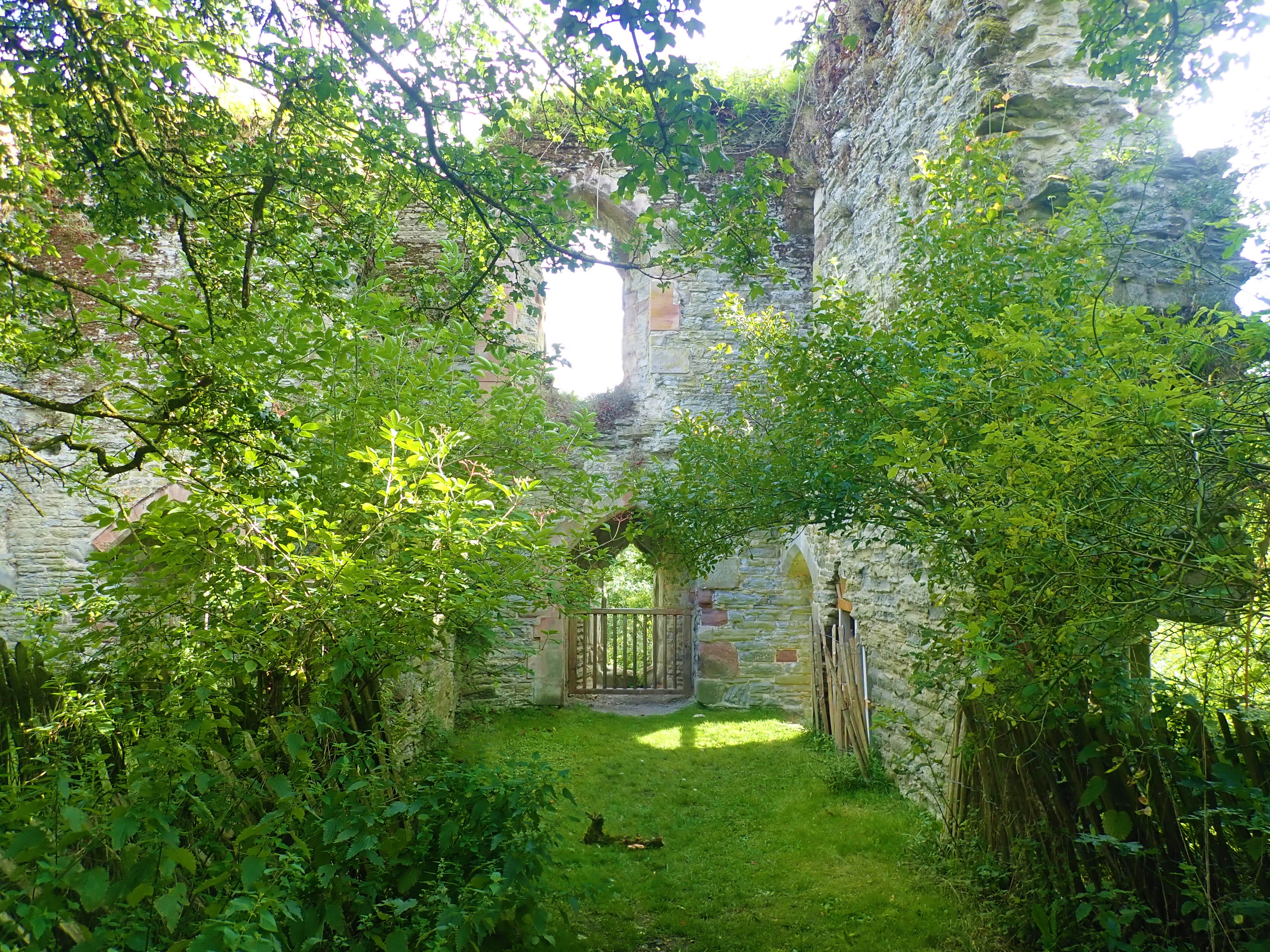
Permission to turn workshop on grounds into two bed house
A workshop on the 30-acre site has planning consent for conversion into a two-bedroom dwelling, as of May 2023. The workshop is located on the outskirts of Wigmore and is accessed via a private driveway leading from the A4110.
It is next to the remains of Wigmore Castle but is not visible from them. The workshop is a steel framed, timber clad barn measuring 12m x 6.0m internally.
The listing on Sunderlands Estate Agents states: “The planning consent granted offers the opportunity to create a stunning conversion set in an elevated secluded position and providing accommodation which includes an open plan living area on the ground floor.
“On the first floor, the consent has approved two bedrooms and a bathroom.”
The planning permission contains stipulations on protecting birds, bats, and trees.
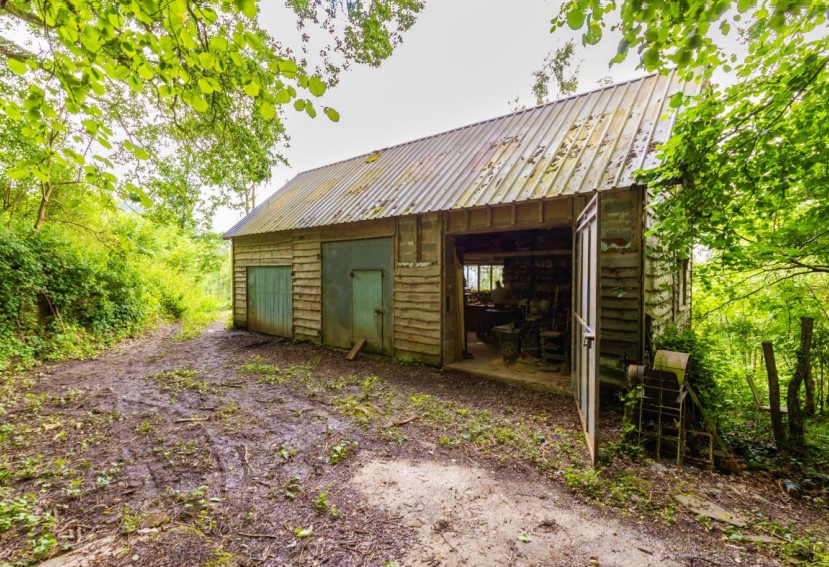
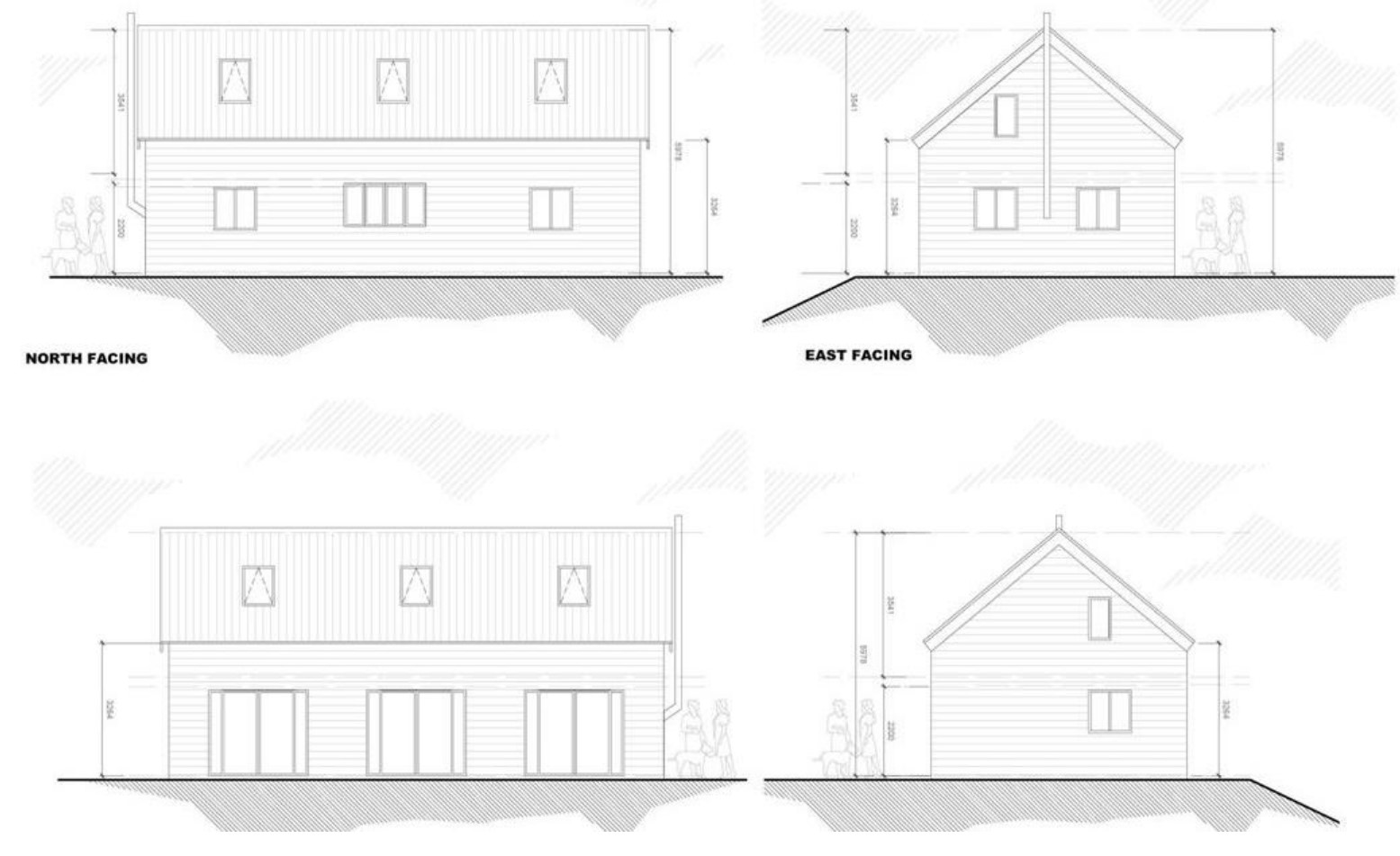
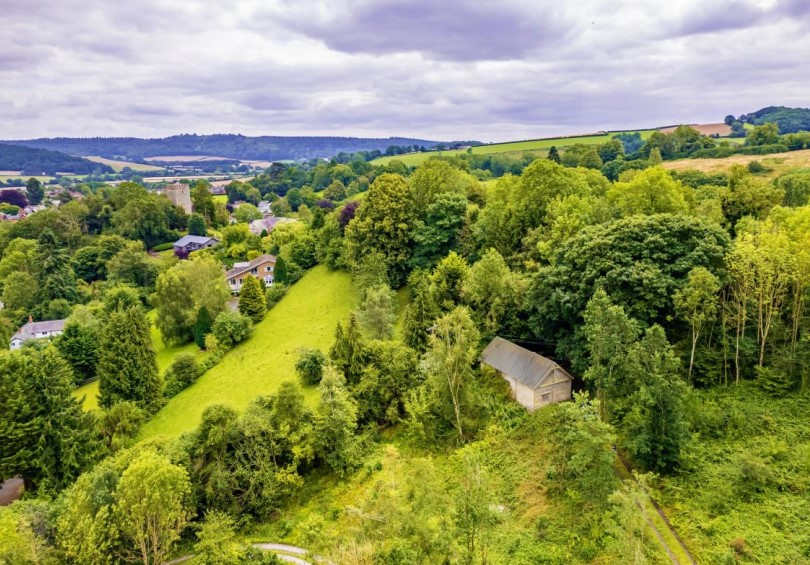
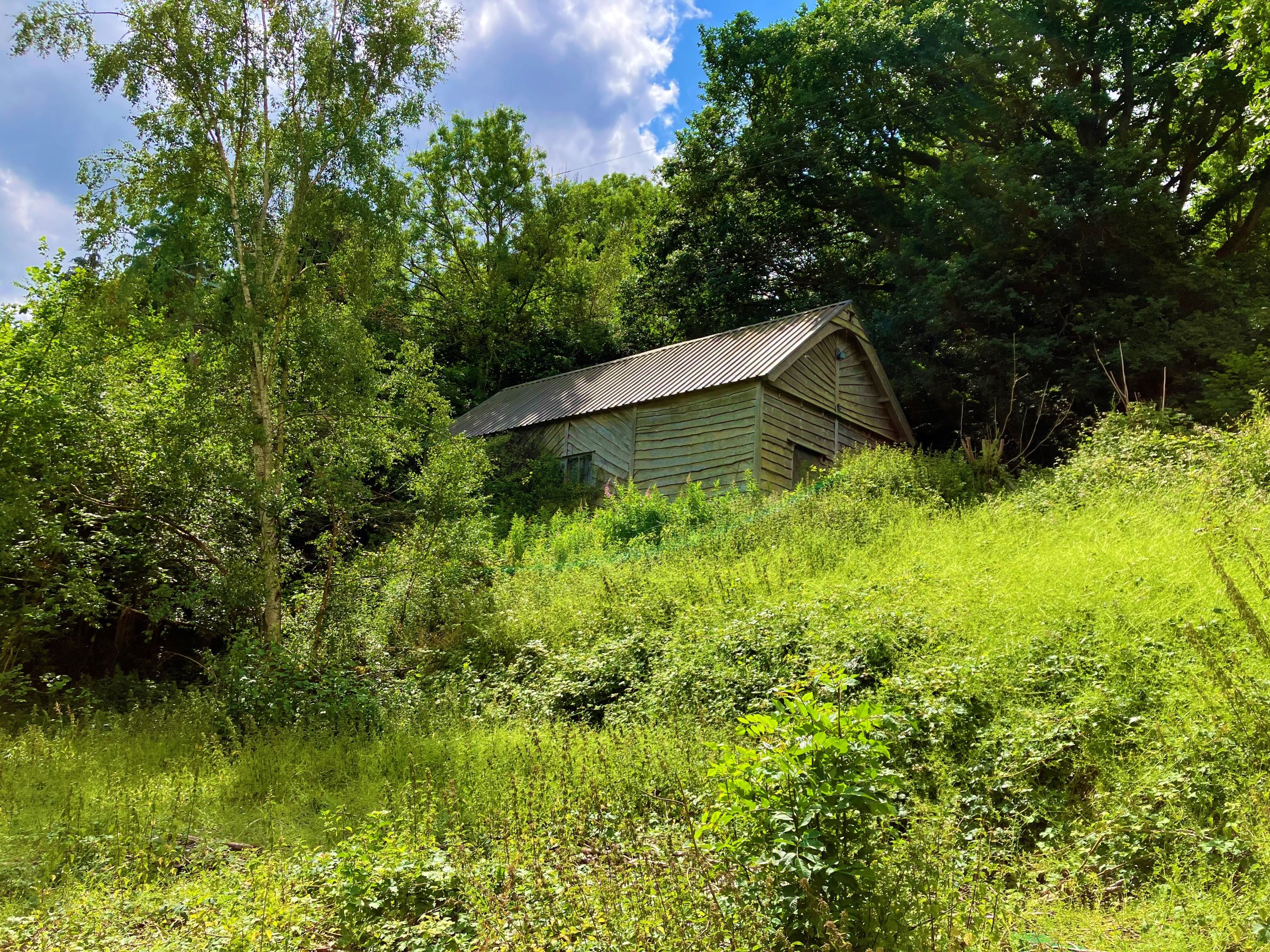
Has its own ecosystem with rare horseshoe bats
When conserving the site in the 1990s, English Heritage deliberately retained its wildness, as the castle had become home to rare and unusual species including lesser horseshoe bats and wildflowers such as ploughman’s spikenard.
Accumulated debris was allowed to remain, and the grasses, ferns and flowers growing on the walls were carefully lifted up and replaced as ‘soft-capping’ to protect the walls from rain and more destructive plants like trees.
The land is very diverse and has predominantly been kept as “managed wilderness” providing a haven for a range of wildlife. English Heritage maintain paths throughout part of the land mainly surrounding the castle to provide easy access for visitors.
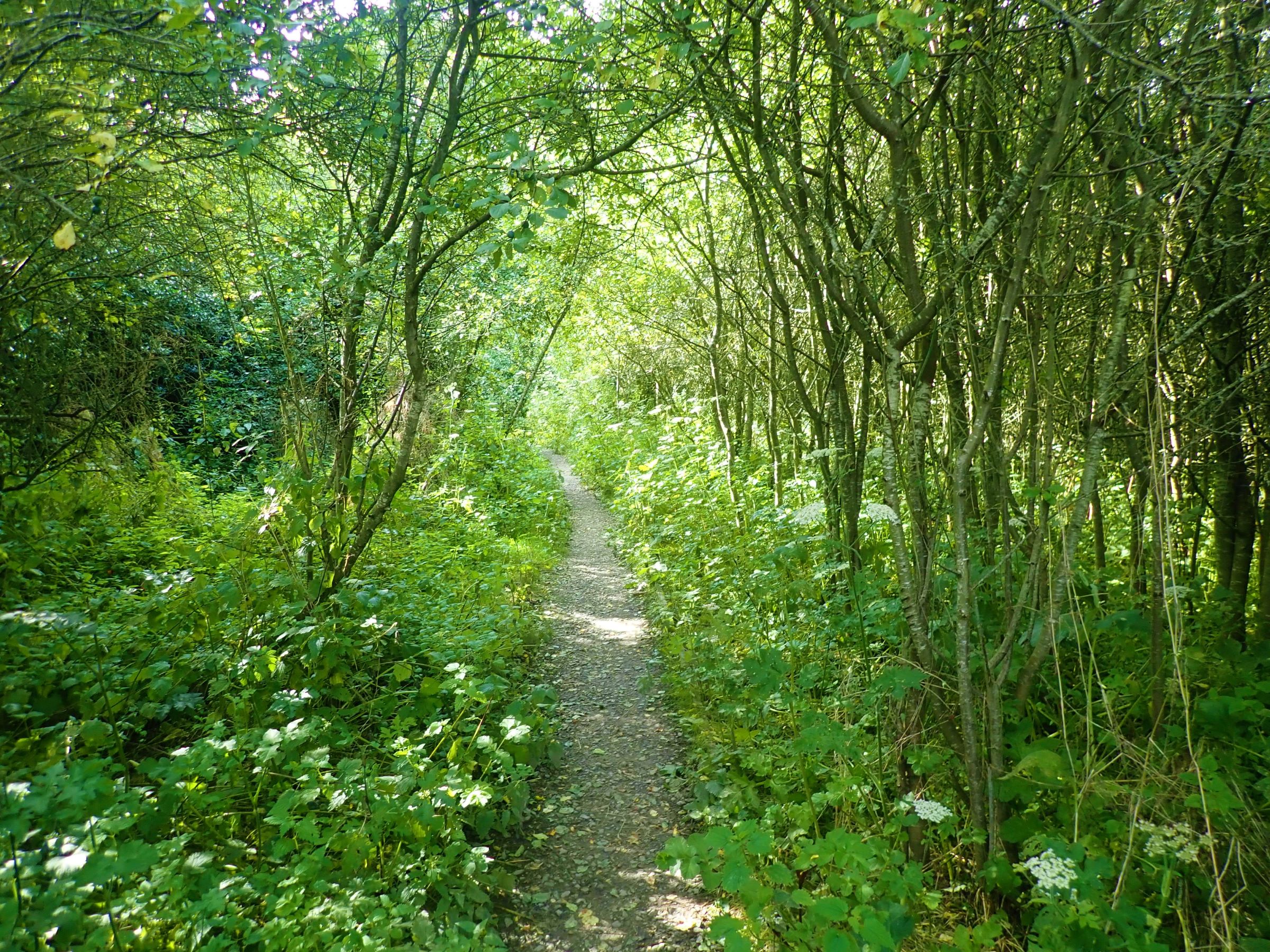
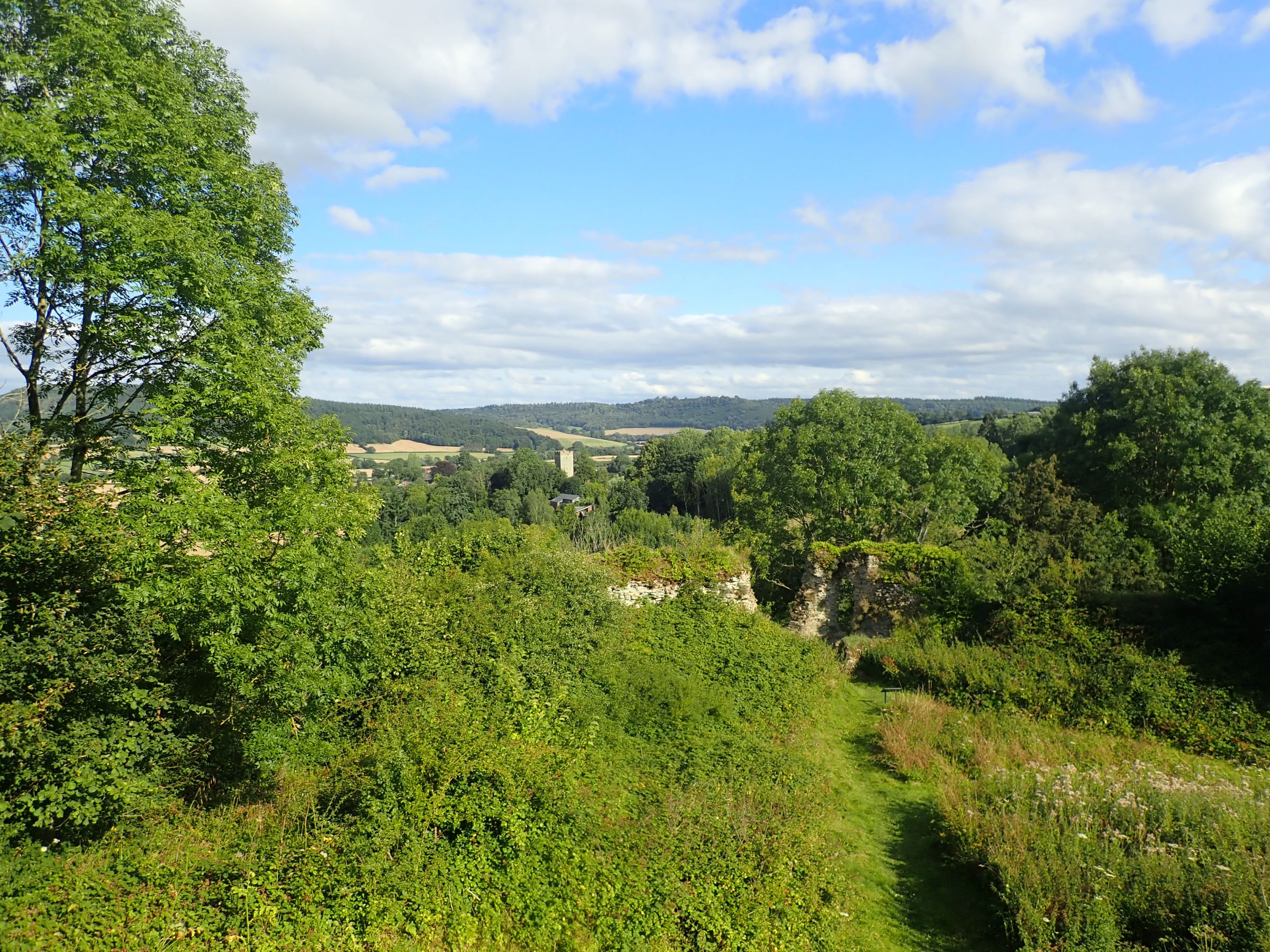

...but you'll have to open its doors to the public
Despite the moat, any buyer will have to contend with invaders swarming the castle as English Heritage maintains a right of way for a pathway to the castle, so locals and tourists have access to the grounds.
Wigmore Castle ruins became a guardianship site in 1995 under the Secretary of State for National Heritage.
Any property under the guardianship of the Secretary of State must by law be made open to the public, as the Secretary of State is responsible for the maintenance of the ancient monument.
The castle is listed for sale with estate agent Sunderlands.
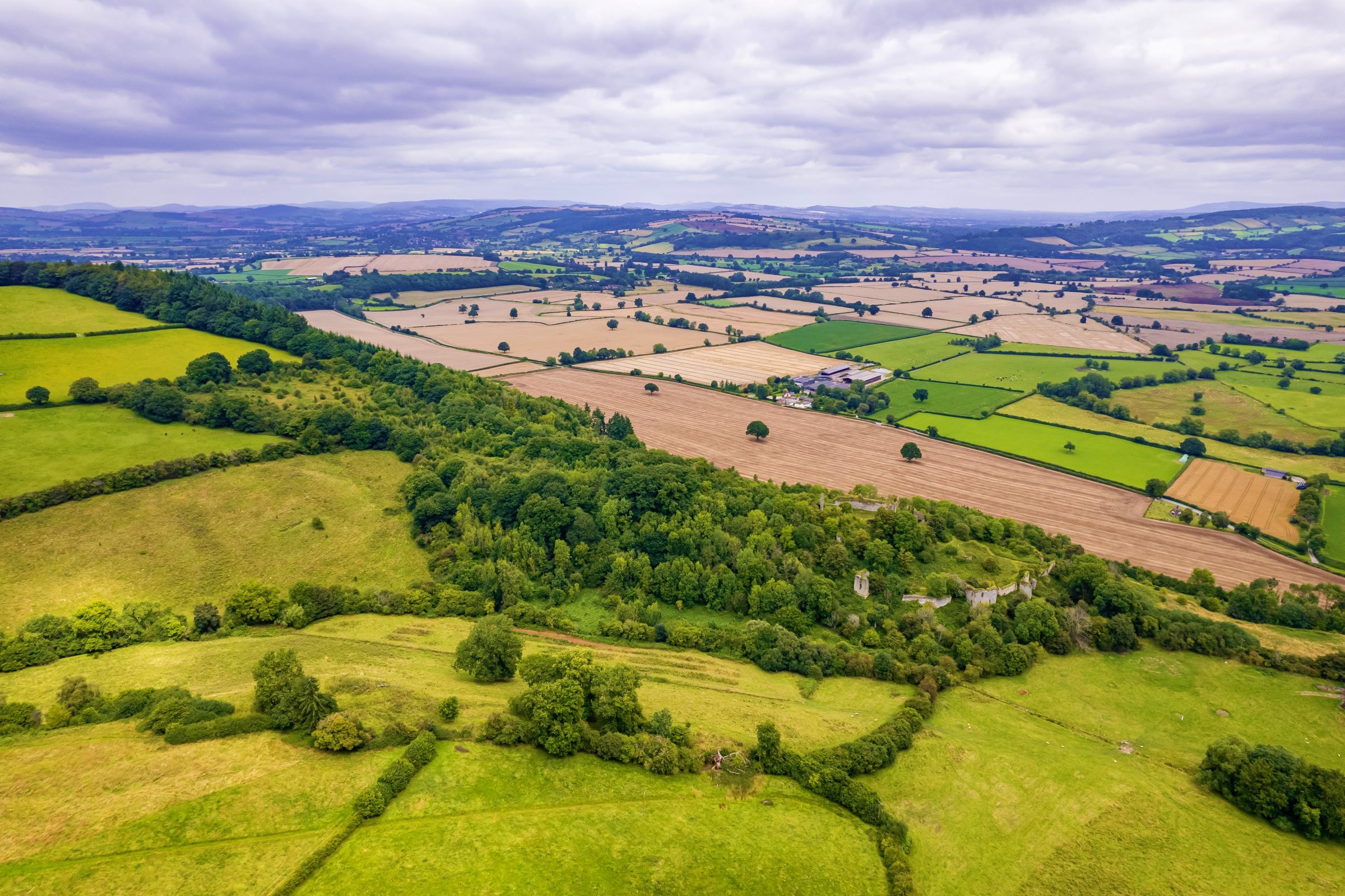
Sam is based in Coventry and has been a news reporter for nearly 20 years. His work has featured in the Mirror, The Sun, MailOnline, the Independent, and news outlets throughout the world. As a copywriter, he has written for clients as diverse as Saint-Gobain, Michelin, Halfords Autocentre, Great British Heating, and Irwin Industrial Tools. During the pandemic, he converted a van into a mini-camper and is currently planning to convert his shed into an office and Star Wars shrine.

